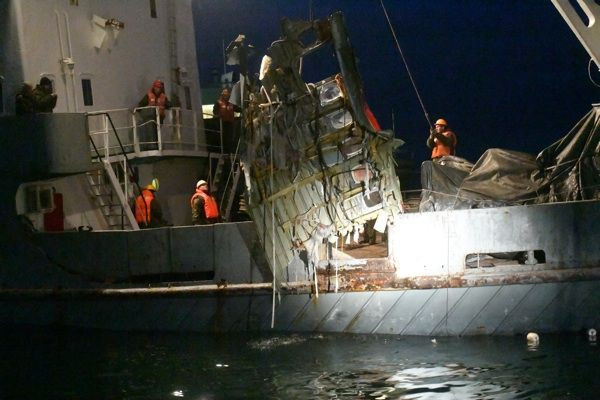Russia Tu-154 Plane Crash Cause Update: Defense Ministry Dismisses Report That Said Pilot Error And Overloading Led To Accident

The Russian defense ministry said Monday it is yet to determine the cause of the crash of a Tu-154 plane that went down in the Black Sea in December. Russian news website LifeNews reported earlier that the preliminary causes established by the ministry said it was because of error on part of the pilot and that the aircraft was overloaded.
The plane belonged to the defense ministry and it was carrying a total of 84 passengers and eight crew members to Latakia province in western Syria for New Year’s concert. It crashed in the Black Sea shortly after taking off on Dec. 25. Russian officials have launched an investigation into the crash.
“All the rumors published by LifeNews on the allegedly established causes of the Tu-154 plane crash in Sochi are absolute nonsense and an invention by this publication. The commission for the investigation of the air disaster continues its work. We consider it as inadmissible and immoral to try like LifeNews to accuse someone without proof and invent some conclusions before the investigation is over,” Igor Konashenkov, the defense ministry spokesman, reportedly said.
The LifeNews report had cited the ministry’s experts and said that human error was the main cause that led to the plane’s crash and that co-pilot Alexander Rovensky confused the levers of the running gear and flaps control. The Tu-154 was also found to be overloaded that led to the accident, the report added.
“The data obtained from the flight recorders of the aircraft suggest that during the third minute of the flight, when the airliner was at an altitude of 450 meters above the sea level, stability system sensors went on, and the aircraft started losing altitude because of problems with flaps,” a source told LifeNews.
Last month, Russian Transport Minister Maksim Sokolov said that the Tu-154 aircraft had equipment functioning “abnormally” and investigators are likely to arrive on conclusions by the end of January.
More than 2,000 fragments of the plane and 19 bodies and 230 body parts were recovered following the complete examination of the crash site.
© Copyright IBTimes 2024. All rights reserved.





















